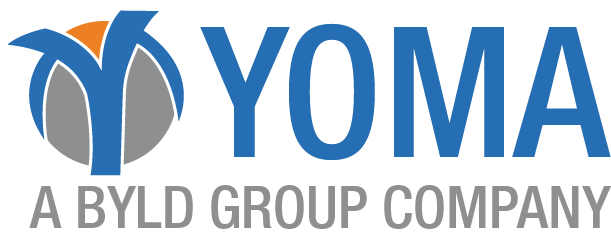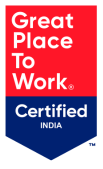Article Content:-
• Introduction
• What Exactly is Human Resources Outsourcing (HRO)?
• Why is HR Outsourcing Crucial?
• Services Typically Human Resources Outsourced Includes-
• Professional Employer Organization (PEO) vs. HR Outsourcing
• ADP, The Global Leaders in Human Resource Outsourcing
• Success Stories of Implementing HRO
• Conclusion
Introduction
In the vibrant world of business, maintaining efficiency is crucial. To effectively build a strategic solution for businesses so that they can run their operations efficiently and focus on core competencies, Human Resource Outsourcing (HRO) has emerged. In this blog, you will explore why HRO is essential, its importance, and the challenges and risks associated with HR outsourcing solutions.
What Exactly is Human Resources Outsourcing and Meaning (HRO)?
Human Resources Outsourcing is a strategic practice where an organization hires a third-party provider (vendor) and gives them the opportunity to be responsible for doing HR tasks effectively, such as payroll processing, compliance management, etc. This strategic approach helps businesses save money and provides them access to technical skills. By reducing or removing the need for a whole in-house HR team, companies can avoid the costs of hiring, training, and providing employee benefits. This cost-effective approach helps businesses strengthen their financial position and operate more efficiently.
Human Resource Outsourcing (HRO) involves recruiting vendors to handle complex HR tasks, allowing businesses to benefit from specialized knowledge and efficiency. From staying legally compliant to finding the right talent, HR outsourcing experts bring specialized skills. Companies benefit from this expertise without investing in hiring or training their team, resulting in smoother and more efficient HR operations.
Human Resource Outsourcing helps companies realign their focus by taking over time-consuming HR tasks. This assists businesses to concentrate on their core strengths and strategic goals. Outsourcing HR will enable organizations to operate more smoothly and support long-term growth and innovation more effectively.
Employment outsourcing becomes a versatile and adaptive factor in the changing dynamics of a company. Depending on changing demands, organizations may easily modify their Staffing functions. In order to maintain the symphony of HR operations’ agility and harmonious alignment with organizational dynamics, the third-party provider responds to changes in the market and expands operations.
Together, cost reductions, less administrative work, access to specialist knowledge, strategic alignment, and flexibility provide a game-changing element that enables businesses to succeed in the ever-changing and competitive business environment.
Read More – How does HR outsourcing enhance organizational agility and innovation?
Why is HR Outsourcing Crucial?
HR Outsourcing is very important in many ways. They are as follows:
• Cost-Effectiveness:
Letting go of the need for in-house HR employees helps save money associated with recruitment, training, and employee benefits. This cost-effective method also improves employee productivity in the workplace.
• Risk Minimization:
Payroll and incentive administration are two examples of challenging HR procedures where specialized Human Resource Outsourcing services lower the possibility of mistakes. By using outsourcing companies’ experience, organizations may reduce risks and guarantee regulatory compliance.
• Support & Compliance:
HRO makes it easy to navigate local labor and tax laws while expanding a firm. By ensuring that HR procedures adhere to local regulations, outsourcing companies lessen the compliance load on businesses.
• Data Security:
HRO providers place a high priority on data security by using cutting-edge encryption techniques and security systems to ensure the security and integrity of the company’s critical data.
• Easy access to Expertise and Technology:
In a professional workplace environment, HRO organizations typically pull out specialized knowledge and experience that ensure that HR tasks are handled effectively and within legal standards. On the other hand, many HRO service providers use advanced HR technology and software in their daily operations, which provides businesses access to advanced tools and analytics without the need for significant investments.
Choosing the Right HR Outsourcing Partner
To choose the best HR outsourcing partner for your organization, the things that need to be taken into consideration are to look for the HR outsourcing partner that aligns with your company’s culture, values, and long-term business development aims. Therefore, to choose the right HR outsourcing Partner, one needs to:
- Service Range- Ensure that offerings match your current and future needs.
- Domain Expertise- Search for a partner who has experience in your industry.
- Technology Capabilities- Advanced, user-friendly HR technology is a must.
- Cultural fit- A good cultural match ensures smooth collaboration.
Services Typically Human Resources Outsourced Includes-
• Payroll and Tax Processing: HRO simplified payroll processing, which also manages tax duties to comply with legal requirements and guarantees correct and timely payments.
• Benefits Management: One of the main services provided by HRO providers includes enrollment, eligibility, and claims processing.
• Software for Time and Attendance: In order to reduce manual error, HRO involves the use of software to handle time-off requests, track working hours, and create data reports.
• Policy Formation and Occupational Safety and Health: The implementation of workplace health and safety measures, regulatory compliance, and HR policy formulation are all aided by human resources outsourcing.
• Hiring and Orientation: HRO helps businesses attract top personnel and make a good first impression by helping with everything from job descriptions to onboarding procedures.
Professional Employer Organization (PEO) vs. HR Outsourcing
Professional Employer Organizations work under a co-employment model that continuously changes the employment relationship. In this collaborative arrangement, the PEO (Professional Employer Organization) becomes the official employer of record for the client’s employees. The PEO shares duties, including payroll processing, benefits administration, tax compliance, and other HR services, but the customer maintains operational control and management choices. The client and the PEO share legal responsibilities and risks in this co-employment arrangement, which promotes a partnership. Human Resources Outsourcing (HRO), on the other hand, functions without creating a co-employment connection. Depending on the client’s demands, HRO providers concentrate on outsourcing certain HR activities. As the only employer of record, the client retains authority over recruiting in bulk hiring, discharging employees, and managing the workforce on a daily basis. HRO provides a more focused strategy that enables companies to outsource certain HR functions, including hiring, payroll processing, training, and compliance.
The choice between PEO and HRO depends on the HR support needed. If a business is looking for an affordable solution with shared responsibilities, a PEO is the best choice. However, if a more tailored strategy is preferred, where specific HR functions are outsourced, HRO becomes a viable option.
How to Successfully Implement HR Outsourcing
If companies want to successfully use HR outsourcing, they must do it as a strategic partnership rather than just as a cost-cutting strategy. The following are the necessary steps:
Draft a Strategic Plan: First, start with a clear goal, which means where you need to improve efficiency, focus on core operations, or save costs. For a smooth outsourcing journey, a strategic plan is the basic step to implementing HR Outsourcing.
Choose the right stakeholder: Choose a staffing service that provides many services that align with your business demands and uses updated, user-friendly HR technologies.
Set clear and logical expectations: Clearly define roles, responsibilities, and performance benchmarks. This ensures alignment and accountability on both sides and sets the stage for a collaborative relationship.
Manage the Transition Period with Patience: It will take time for changes to take place. While some changes happen immediately, others take time. Throughout this stage, assist the outsourcing company and your internal teams.
Review Progress Regularly: Continuous assessment is essential. Monitor results, review objectives, and make necessary modifications. Regular reviews help maintain the health of the partnership and ensure you’re getting value.
Read More – HR Outsourcing Services: Enhancing Efficiency and Reducing Costs
Success Stories of Implementing HRO
IBM (International Business Machine) and ADP (Automatic Data Processing):
- IBM is a multi-national consulting company that has faced many challenges in the past in managing its complex HR processes across multiple locations.
- IBM, when integrated with ADP, is a vibrant HRO service provider.
- ADP, when implemented with HRO solutions, includes payroll processing, benefits administration, and compliance management.
- By outsourcing HR functions, IBM achieved cost savings associated with technology infrastructure, personnel, and process optimization.
Unilever and Accenture:
- Unilever, a multi-national consumer goods company, aimed to streamline its HR operations for greater efficiency and global consistency.
- Unilever collaborated with Accenture for an end-to-end HRO solution. They included talent acquisition, workforce administration, and learning and development.
- Accenture’s HR outsourcing solution allowed Unilever to scale HR operations seamlessly, accommodating the company’s global expansion.
- With HR Outsourcing Services, Unilever’s HR team could shift its focus to strategic initiatives, contributing to business growth.
Common challenges and risks associated with HR outsourcing solutions
The common challenges and risks associated with HR outsourcing solutions are as follows:
- Concern related to Privacy and Security: If the third-party provider’s software lacks proper security measures or is compromised by issues like viruses or malware, your employee data could be exposed to severe security threats. Sensitive employee data may be exposed to cyberattacks and system failures, as many service providers conduct HR tasks using web-hosted applications.
- Reduced flexibility in HR processes: In small businesses, in-house HR teams can often make quick, compassionate decisions like approving early access to next year’s leave or paying out unused vacation days in emergencies. With outsourced or automated HR, offering such personalized accommodations can become difficult or even unfeasible.
- Conflicts and processes can take a longer time to resolve: When errors occur, like payroll mistakes or incorrect vacation balances, resolving them through a third-party HR provider can take longer than in comparison with an in-house HR team. This is often because third-party staffing services need senior members’ permission for the approval processes. Such delays can leave employees feeling frustrated or dissatisfied.
Thus, the hiring process may take longer with an outside recruiter, and employee onboarding and training might feel less customized and personal than if you used your in-house HR department.
Conclusion
Embracing Human Resource Outsourcing (HRO), as seen in successful companies like IBM and Unilever, is a powerful strategy for business growth. By handing over HR tasks to experienced providers like ADP, organizations can improve compliance, boost efficiency, and enhance employee satisfaction, all while staying focused on their core business goals. HRO is more than just a trend; it’s a smart move for long-term success.
Read More – Why Human Resource Outsourcing is a Game Changer for Modern Businesses











